Publications
Articles, publications, books, tools and multimedia features from the U.S. Institute of Peace provide the latest news, analysis, research findings, practitioner guides and reports, all related to the conflict zones and issues that are at the center of the Institute’s work to prevent and reduce violent conflict.
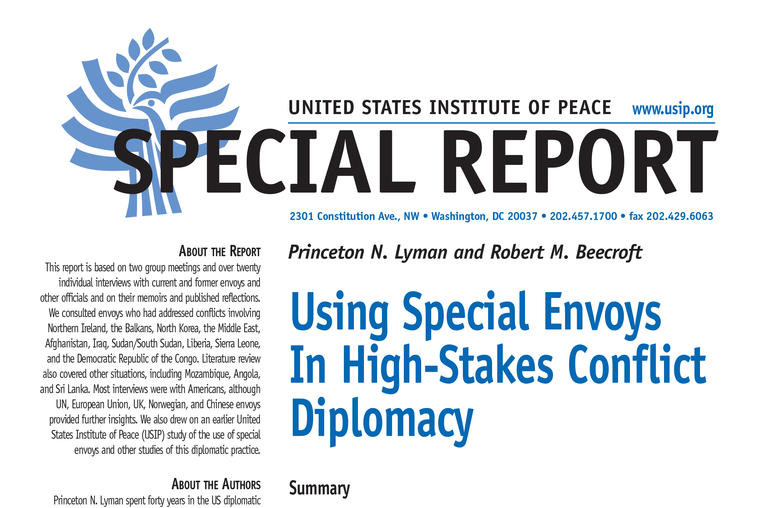
Using Special Envoys In High-Stakes Conflict Diplomacy
Special envoys or representatives have been used by nearly every administration to address high-stakes conflicts and to address situations with a degree of attention outside the capacity of the State Department and other regular bureaucratic structures. This report focuses on the issues surrounding the use of special envoys or representatives and how they can be used most effectively.
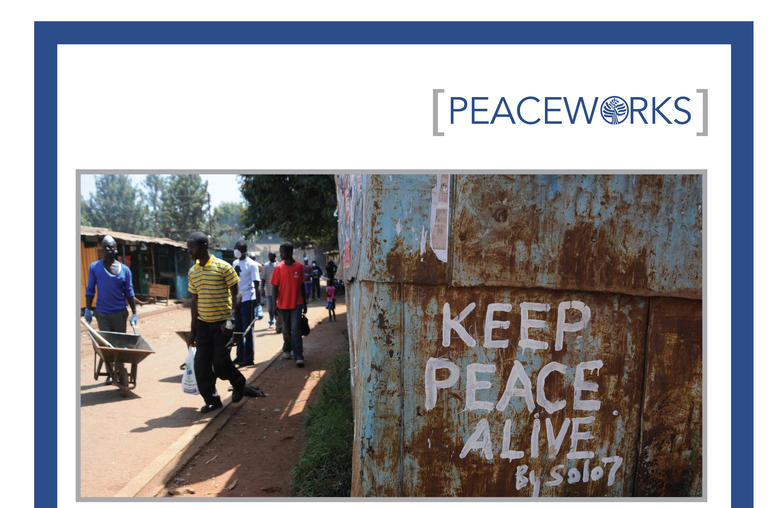
Elections and Violent Conflict in Kenya: Making Prevention Stick
To prevent a recurrence of the widespread violence that left 1,100 dead and 650,000 displaced in the aftermath of the December 2007 Kenyan elections, Kenya and the broader international community initiated a multifaceted peacebuilding effort in the lead-up to the country’s March 2013 elections.
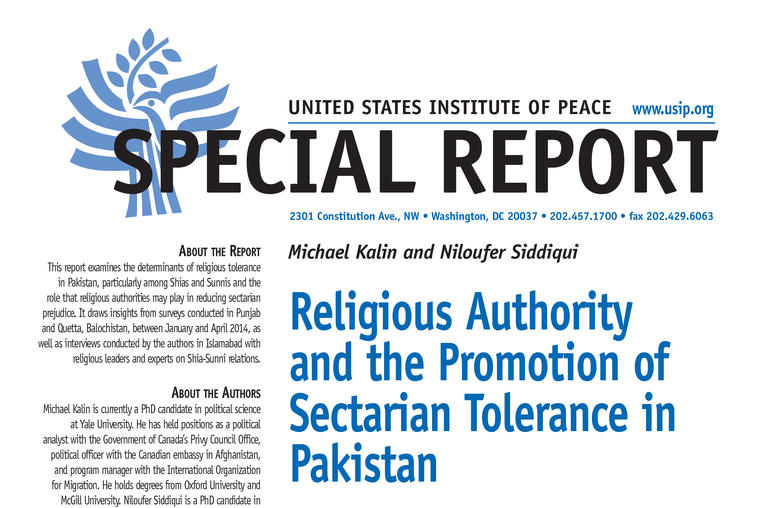
Religious Authority and the Promotion of Sectarian Tolerance in Pakistan
Sunni-Shia tensions have been a recurrent problem in Pakistan for more than three decades, as domestic and international factors have polarized sectarian identities. Recently, the Shia minority has suffered the brunt of the violence. This report examines what has fostered intolerance and tolerance between Sunnis and Shias in Pakistan and the role that religious authorities may play in reducing sectarian prejudice.
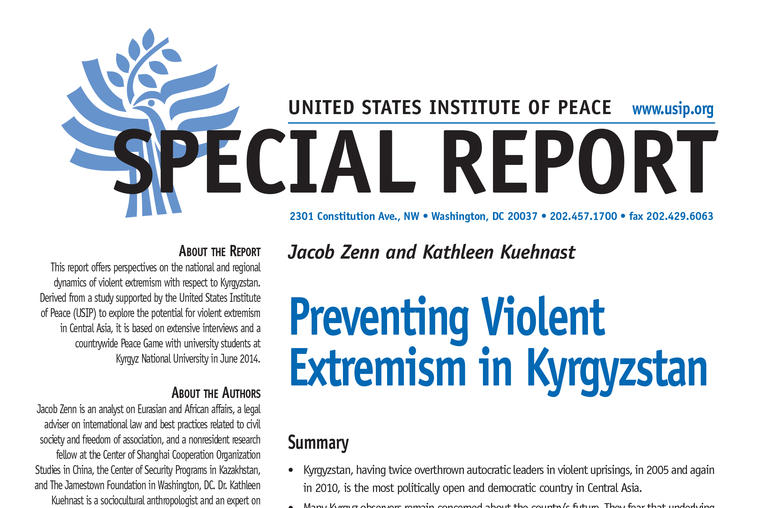
Preventing Violent Extremism in Kyrgyzstan
Kyrgyzstan is the only country in Central Asia that has seen significant political transition since the breakup of the Soviet Union in 1991, having twice—in 2005 and 2010—overthrown autocrats in violent uprisings. At the same time, its new democratic institutions, elected leaders, and multiparty parliament make it a test case for political liberalization. If its political system fails or the country falls apart, so will the first democratic experiment in Central Asia. Concerns within Kyrgyzst...
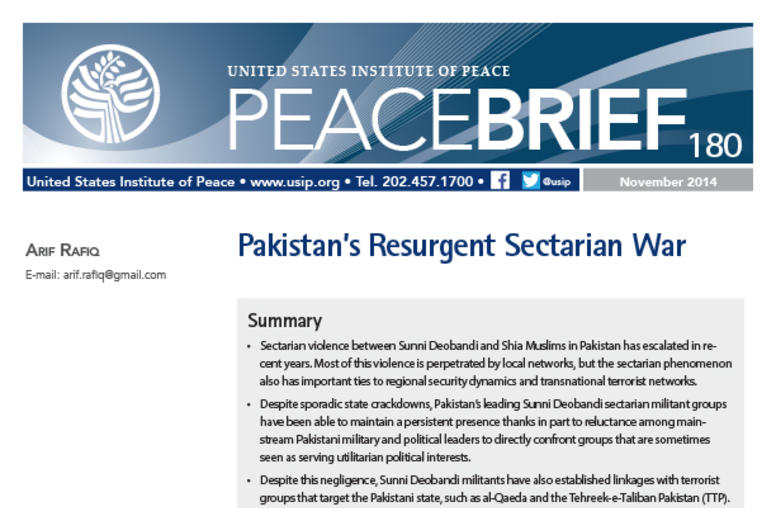
Pakistan’s Resurgent Sectarian War
The violence across the Middle East has energized sectarian militant networks on both sides of the conflict in Pakistan. This report gives an overview of the history of conflict between Sunni Deobandi and Shia militant and political organizations in Pakistan and offers warnings about further radicalization there and its effects on the politics of the state.
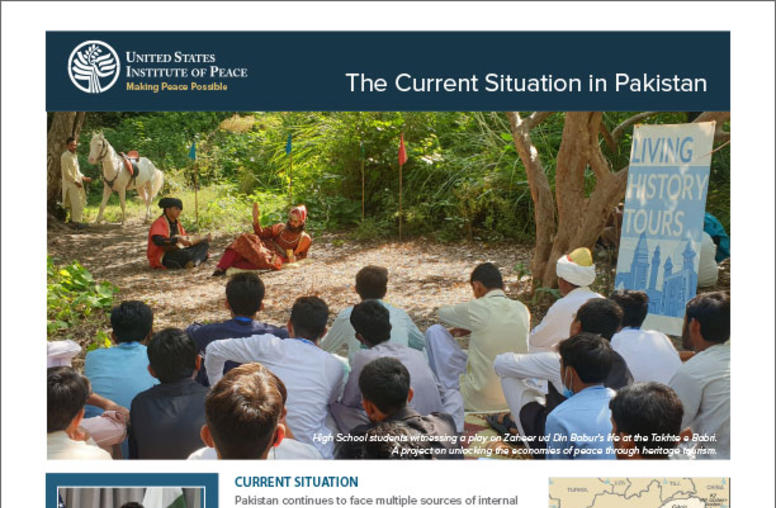
The Current Situation in Pakistan
Pakistan continues to face multiple sources of internal and external conflict. Extremism and intolerance of diversity and dissent have grown, fuelled by a narrow vision of Pakistan’s national identity, and are threatening the country’s prospects for social cohesion and stability.

Fall 2014 Insights Newsletter - Reconciliation
Insights highlights major questions on the research and practice of peace and conflict, to more than 10,000 subscribers from around the world.
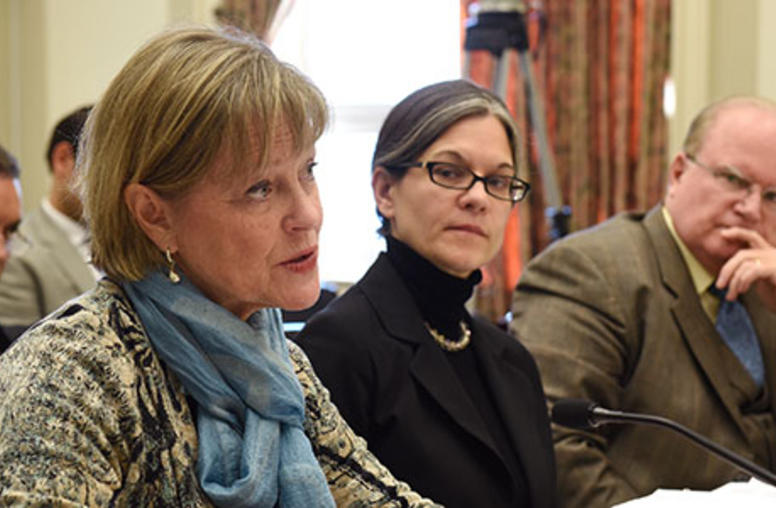
Water Sharing Conflicts and the Threat to International Peace
Dr. Kathleen Kuehnast, director of the Center for Gender and Peacebuilding at the U.S. Institute of Peace, testifies before a House Foreign Affairs Subcommittee on Europe, Eurasia and Emerging Threats hearing on “Water Sharing Conflicts and the Threat to International Peace.”
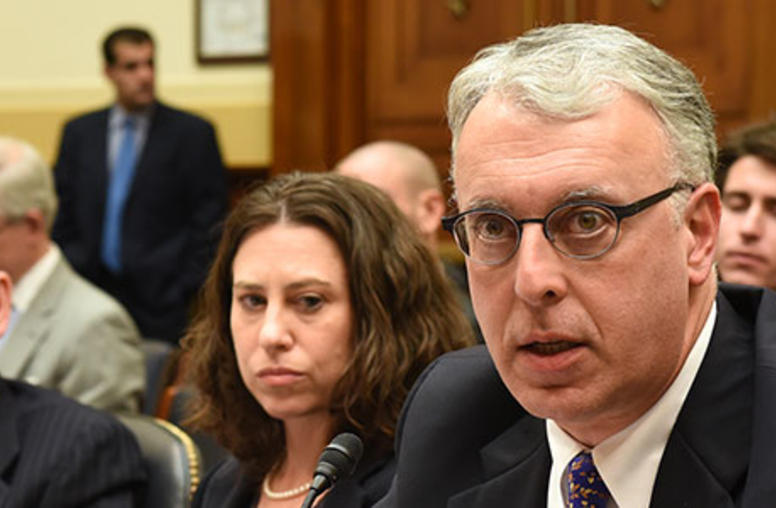
Next Steps for U.S. Foreign Policy on Syria and Iraq
Dr. Steven Heydemann, vice president of the Center for Applied Research on Conflict at the U.S. Institute of Peace, testifies before a House Committee on Foreign Affairs Subcommittee on Middle East and North Africa. More from Heydemann following his testimony, ”Integrated Iraq-Syria Strategy Needed to Defeat the Islamic State."
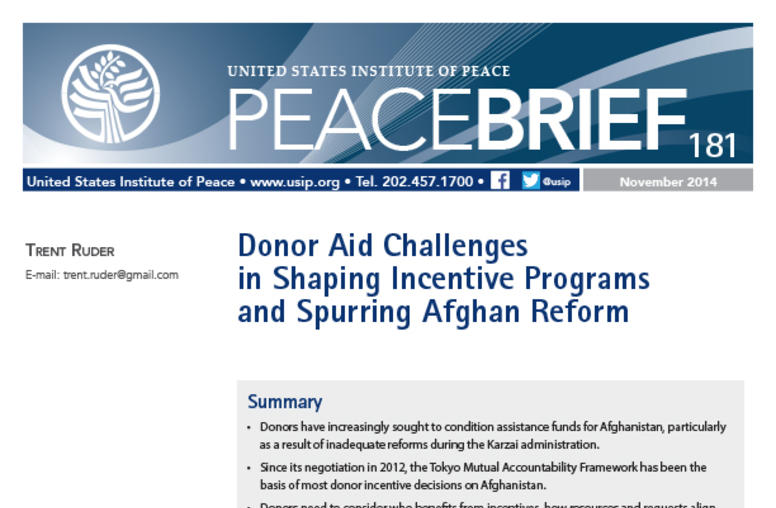
How to Spur Afghan Reforms: The Limits and Benefits of Incentives
Although not a magic bullet, incentive programming can help shape dialogue with the new Afghan administration. What are incentive programs? How do issues such as stakeholder participation, Afghan capacity and consequences of success or failure affect policy decisions for incentive programs? In addressing these questions, this PeaceBrief points the way to more effective incentive programming.